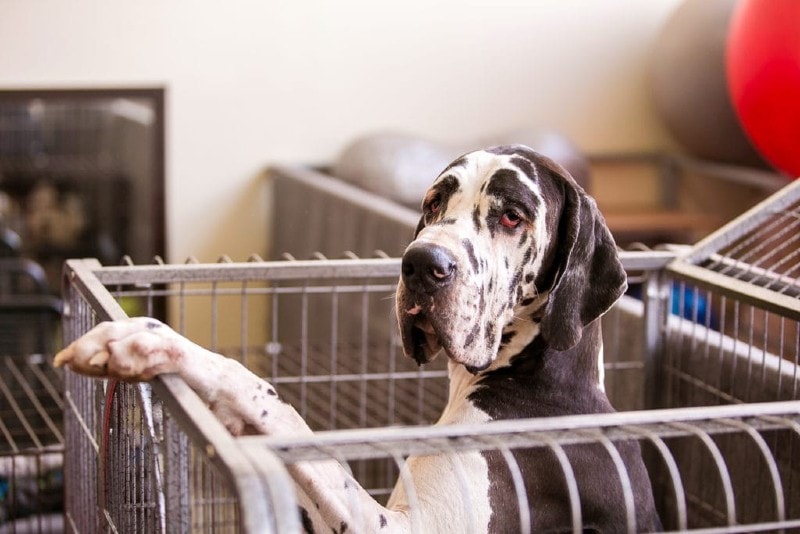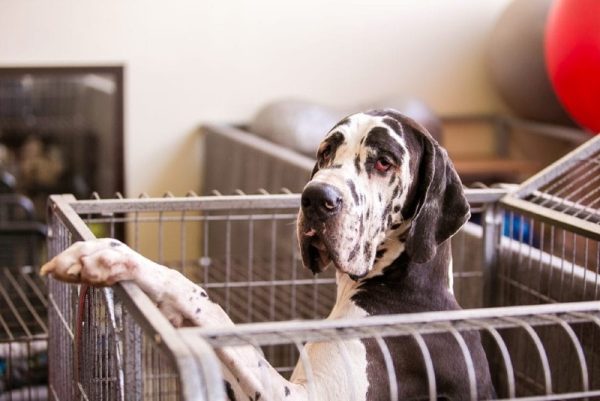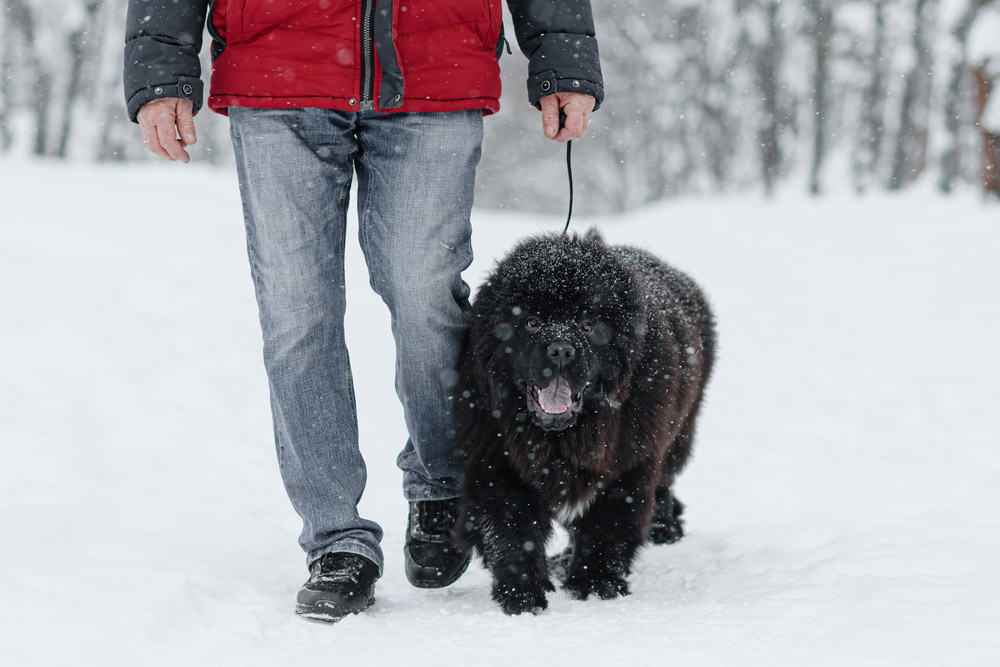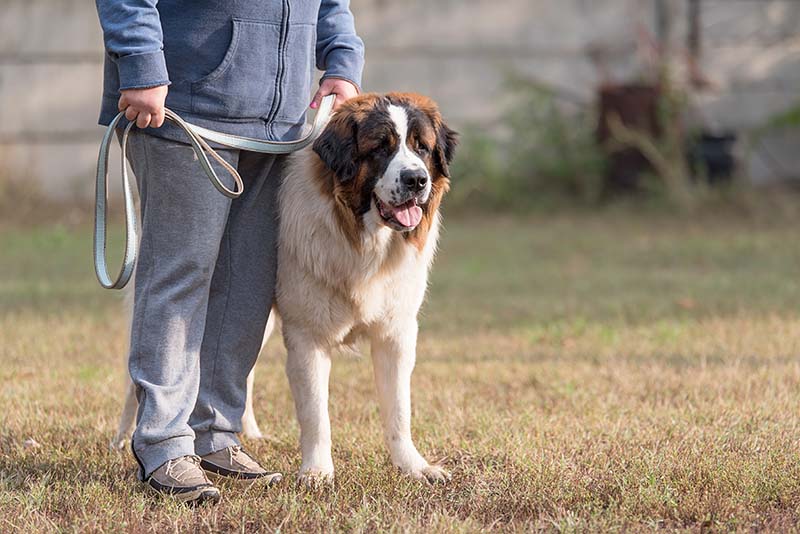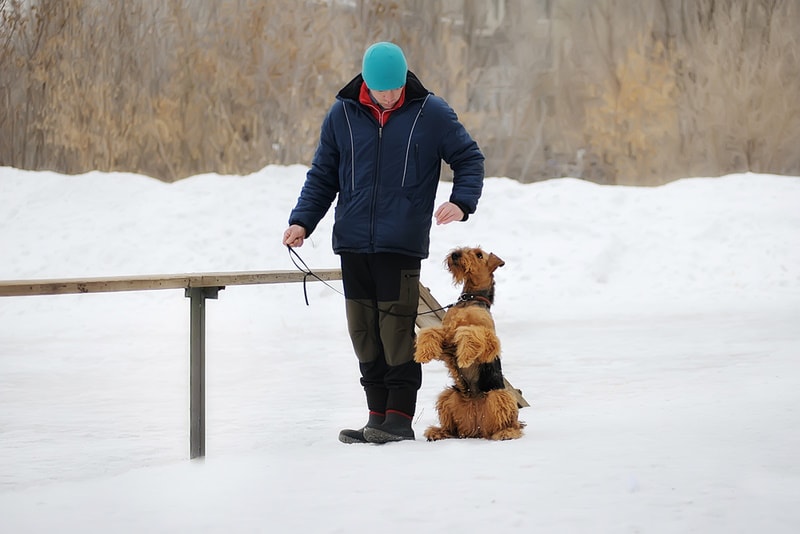There are many reasons why a dog needs to be crate trained. Some dogs get into mischief if they are left out by themselves when you are not home. Some dogs eat things that they shouldn’t, putting them at risk of a blockage. Other dogs simply decide they can poop or pee wherever, whenever they are left alone for too long. Whatever the reason, crate training is a very common and important part of a dog’s training. But how do you successfully crate train your dog, especially one as large as a Great Dane?
These are seven expert tips on how to crate train your Great Dane for the best possible results.
How to Crate Train a Great Dane: 7 Tips & Tricks
1. Choose a Crate Big Enough for Your Great Dane
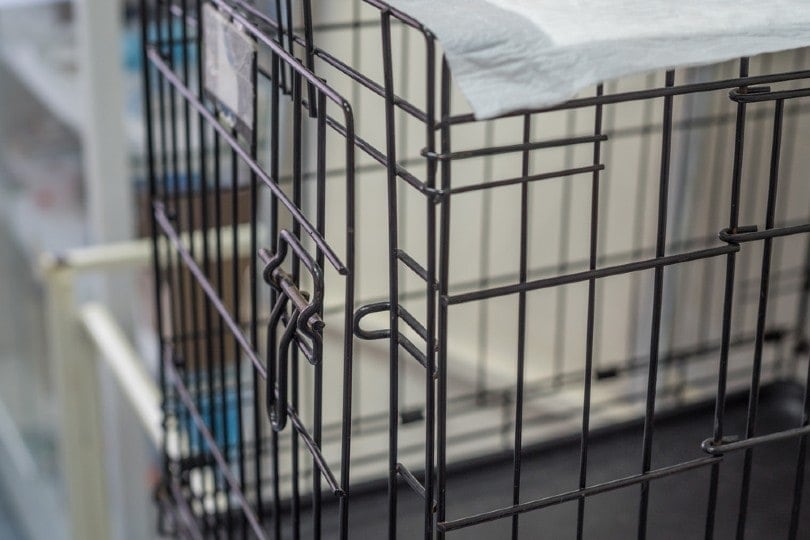
Great Danes are very large dogs, and they need to have an equally large crate to keep them comfortable. If a crate is too small, the dogs will not feel comfortable in them, and that will cause them to not want to enter the crate or stay in the crate for long periods. Check the dimensions of your crate and ensure that they will comfortably accommodate your Great Dane. As a general rule, dogs should have enough space to stand and turn around in the crate for them to feel completely comfortable. If they cannot stand or turn around, they will feel cramped and trapped which will damage their association with the crate over time.
2. Never Force Your Dog Into the Crate
One thing you should never do while crate training your Great Dane is force them to enter the crate. Do not grab, drag, or shove your dog into the crate. That will immediately create a negative association with the crate, and it will make it much harder to get them to feel comfortable in and around the crate in the future. You should always try to entice the dog to enter the crate on its own.
You can entice your Great Dane to get in the crate by using food or treats. You can also leave the crate open and in a central area to see if the dog will enter the crate on its own out of curiosity or to go and lie down.
3. Always Reward & Praise the Dog When It Enters the Crate
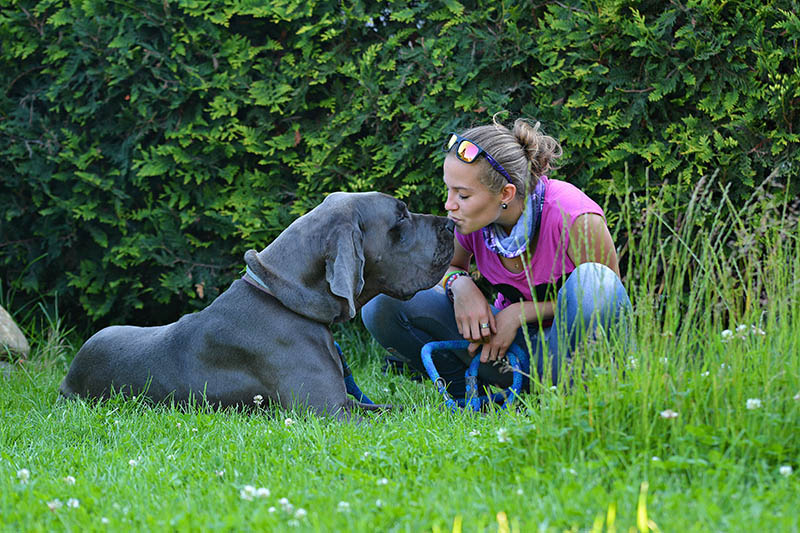
When your dog enters the crate, you should always praise the dog. Use their name and tell them they are being good when they are in the crate. You can also give the dog treats (or individual kibbles) as a reward for entering the crate. The reward and praise will help your Great Dane form a positive association with the crate rather than a negative one.
4. Start Small & Work Upwards
Dogs will not naturally want to spend hours a day in a crate. You should start small and work your way up to longer periods of time. If you are working on getting your dog to enter the crate naturally, start shutting the door when they go in. Leave them in the crate for 15 minutes and then 30 minutes. Slowly work your way up to an hour and then finally multiple hours if needed.
Leaving a dog that is not crate trained alone in a crate for hours at a time right from the beginning could cause anxiety and loneliness which will create a negative association with the crate. If you get your dog comfortable with the crate and then work them up to longer stints in the crate, they will do much better in the long run.
5. Keep Associations with the Crate Positive
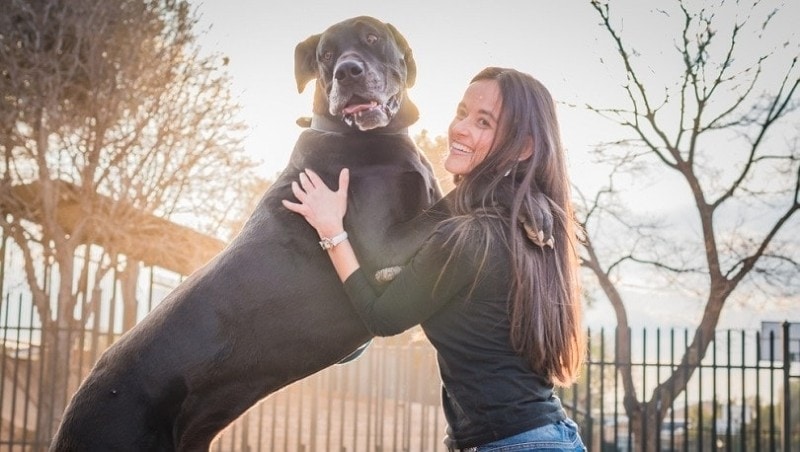
The biggest key to crate training a dog is to keep their association with the crate as positive as possible. Try to give your dog lots of praise and rewards when they enter the crate. If the dog is in the crate, do not yell at them or become frustrated with them.
If you want to crate train your Great Dane to stay in the crate while you are at work or out of the house, do not use the crate as a punishment. When a dog makes a mess in the house or misbehaves, some people like to put the dog in the crate as a punishment. That will only make the dog associate the crate with negative emotions, which will hamper your ability to fully crate train your dog in the long run.
6. Encourage Napping or Sleeping in the Crate
Not all dogs can be trusted with bedding inside their crate. If your Great Dane chews or rips up blankets or bedding when you are not around, they cannot have bedding in their crate and remain safe. However, if your dog can be trusted with bedding, put a dog bed and a blanket in the crate to encourage napping. Leave the crate door open to let your dog enter and take a nap whenever they feel like it.
This will have two benefits. First, it will help let your dog know that they can sleep in the crate. Dogs that sleep in their crates do better with long periods of time when they need to be crated. Second, it continues to build that positive, safe, and comfortable association that you ultimately want for the crate in general.
7. Praise & Let the Dog Out After Each Release
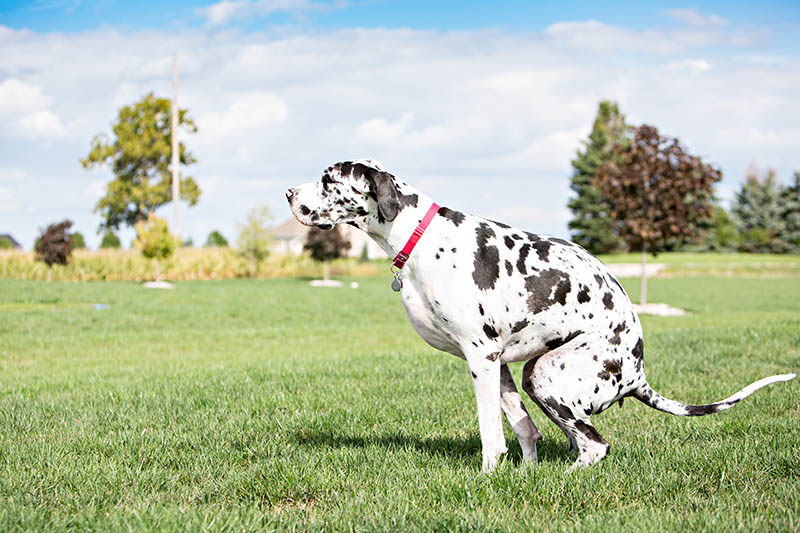
Getting your dog to go in the crate is just part of the equation. You also need to give your dog certain cues when they exit the crate. Dogs will typically hold their bladder when they are in the crate, so they do not pee or poop on themselves. Every time you let your dog out of the crate, you should give them verbal praise and immediately let them outside to relieve themselves. That way, they do not have to hold it. They will get bladder relief and positive praise which will make them feel like the crate is safe. It also builds a routine connected to the crate that will help build trust over time.
Summary
These tips will help you crate train your Great Dane with a high rate of success. The most important part of crate training is building that trust and creating lasting positive associations between your dog and the crate. Avoiding any negative associations and heaping large amounts of rewards and praise are key components to crate training a Great Dane. As long as your dog feels comfortable with the crate, training them should be a breeze.
Featured Image Credit: marinaks, Shutterstock
Contents
- How to Crate Train a Great Dane: 7 Tips & Tricks
- 1. Choose a Crate Big Enough for Your Great Dane
- 2. Never Force Your Dog Into the Crate
- 3. Always Reward & Praise the Dog When It Enters the Crate
- 4. Start Small & Work Upwards
- 5. Keep Associations with the Crate Positive
- 6. Encourage Napping or Sleeping in the Crate
- 7. Praise & Let the Dog Out After Each Release
- Summary

